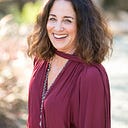KEY POINTS
- October is Emotional Wellness Month and Breast Cancer Awareness Month.
- Adverse childhood experiences can increase risk for a number of illnesses in adulthood.
- Consistent stressors on the part of the parent can affect the growing child.
October is Emotional Wellness Month, and it’s also Breast Cancer Awareness Month. Many factors come into play in the discussion between emotional wellness and cancer. While it would be presumptuous and harmful to presume that an early, challenging parent–child relationship could result in cancer later in life, there’s evidence that stressors encountered in childhood may contribute to health challenges at a later date.
Adverse Childhood Experiences
Adverse childhood experiences (ACEs) are traumatic experiences encountered before the age of 18. According to the Centers for Disease Control and Prevention (2023), we know these experiences can include neglect, violence, or abuse; witnessing violence in the home or community; and having a family member attempt or die by suicide. Astonishingly, approximately 64 percent of adults in the United States have reported at least one ACE. What essentially occurs is that the stressor activates or triggers a surge in the stress hormone cortisol. Studies have shown that over a period of time, this results in brain changes that may result in a higher risk for diseases such as asthma, chronic obstructive pulmonary disease (COPD), heart disease, and the incidence of cancer.
ACEs have been researched for decades. In 2002, a study conducted by Vincent Felitti, MD, found that ACEs are “vastly more common than recognized and acknowledged.” The study highlighted the powerful correlation to health as much as 50 years later. Depression, for example, was common in this group. In fact, the incidence of depression was 46 percent more likely than for those who were unexposed to ACEs. Studies also show that children of Holocaust survivors have been affected by the stressors their parents encountered. In other words, children wind up bearing the burden of their parents’ legacy.
Nadine Burke Harris, MD, a pediatrician, crusader, founder of Center for Youth Wellness, and former Surgeon General…
